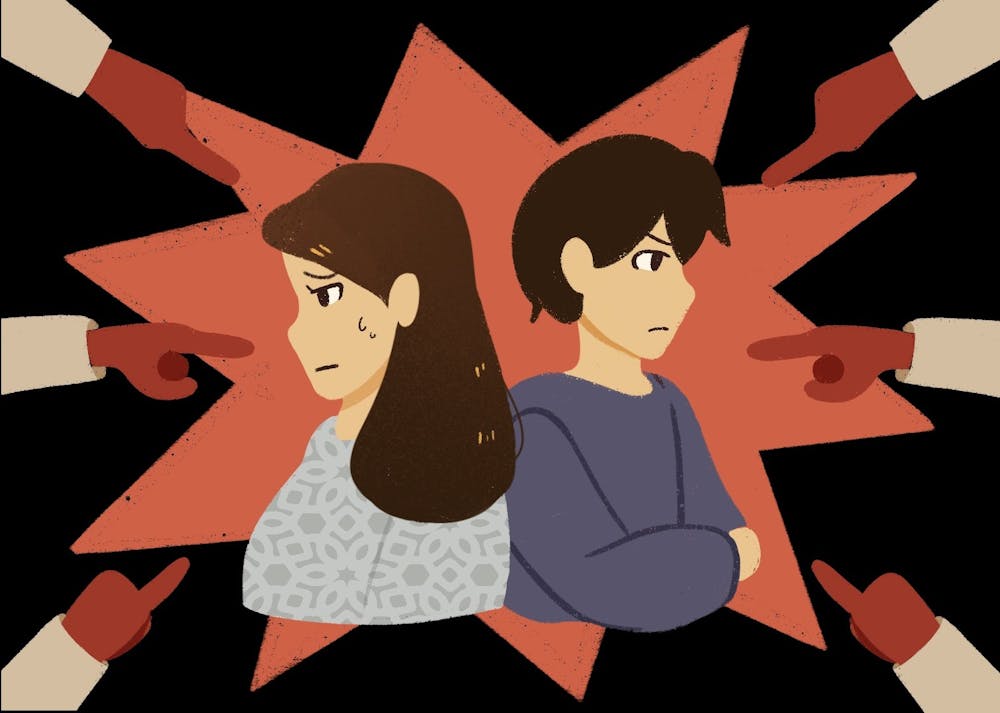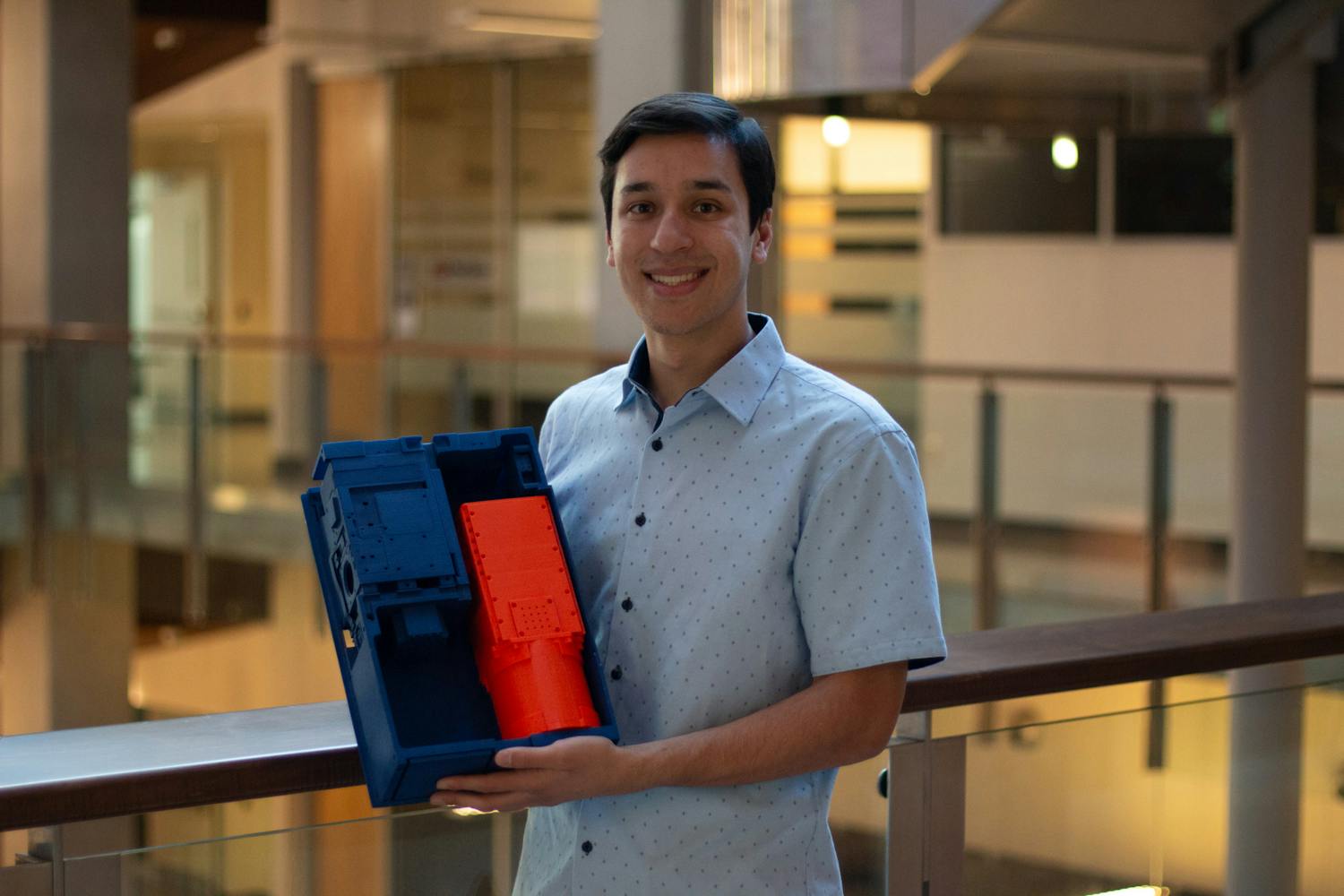Bawi Cung. Lee-Lee Chin-Yeung. Juanito Falcon. Ying Ngov. Angelo Quinto.
These names are a few of the many Asian Americans who have become victims to an increasingly harmful problem sweeping across the nation: violent racism against Asian Americans.
From stabbings in New York City's Chinatown, to Asian-owned businesses being targeted and robbed, to the most recent violent attacks against Asian women in Atlanta, these incidents have become far too common.
Following the shootings in Atlanta, law enforcement has dismissed the elements of racism and sexism obviously present in the attacks as consequences of "a really bad day." This is a symptom of the wide acceptance and normalization of white supremacist ideology in America that needs to end.
No matter how people try to justify these attacks, they are, at their core, racist and stem from a long history of white supremacy and nationalism that needs to be confronted and deconstructed in order to create an America that embraces and empowers Asian Americans, rather than attack and blame.
“There has been a tendency to target different Asian ethnicities throughout the United States history,” said Karen J. Leong, an associate professor of women and gender studies and Asian Pacific American studies in the School of Social Transformation. “It’s never been one monolithic anti-Asian narrative. It’s taken on different forms and specificites based on the particular moment.”
Phrases former President Donald Trump used, such as the "China Virus" and the "Kung Flu" were not only used to place blame for COVID-19 on China, but also constructed a negative narrative in which ongoing racism against Asian Americans had room to grow.
“I think that just made people more open and comfortable because their present president was open and comfortable with being racist," said Alessandra Rivera, a freshman studying social work. "It gave people initiative to come out of hiding.”
Hate crimes against Asian Americans in 16 major U.S. cities have made a striking 149% increase in 2020, according to California State University, San Bernadino's Center for the Study of Hate and Extremism.
READ MORE: Students, faculty advocate for awareness of anti-Asian racism
“The whole reason why there is any sort of historical animosity to the (POC) communities is because of white supremacy, white nationalism,” said Alexis Kim, a sophomore studying nursing.
Leong said another function of white supremacy is the idea of white masculinity protecting white femininity in America. This is often used by white males to justify racist crimes against people of color, and has played a part in the rise in violence against Asian Americans, she said.
“Anti-Asian racism is linked structurally to white supremacy and often to cis white hetero patriarchy, which really is about this very normative idea of heterosexual families, led by the authority of white males,” Leong said.
This white supremacy is now persevering through political agendas that shift the blame for American issues onto marginalized communities.
“There's this idea of how to get different non-white groups to fight against each other, rather than to unite and fight against white nationalism and white supremacy,” Leong said. “So there's ... this constant shifting of who's going to feel like they might have access and who's going to be seen as the other, and how these different groups can be pitted against each other.”
The model minority myth implies that Asian Americans will remain complacent to mistreatment, conveying the idea that they make easier targets. However, these individuals are not to blame and are underserving of the hate they've received as the public's scapegoat.
“We're seen as the perpetual foreigners, you know, stereotypes of us are just constantly used, and you see it in the media all the time," Kim said. "I think the biggest issue now is that people just need to know what’s happening."
In light of recent events, the Korean American Student Association, the Vietnamese Student Association, and the Southeast Asian American Student Association will be holding a collaborative virtual workshop to discuss the current situation on Tuesday, March 23 at 6:30 p.m. via Zoom.
It’s time we, as a society, collectively come together and ensure that this continuous wave of hate stops at the source: white supremacy. Perpetuating the false and racist idea that Asian Americans are an enemy of the public is yet another way to divide the U.S. and keep white nationalist ideologies in place.
As allies to Asian communities, we need to actively listen and make personal decisions to do better and uplift our Asian friends, family, brothers, sisters, children, and elderlies.
“When people do nothing when people say racist comments, those comments are going to continue,” Leong said. “Anytime those comments are made and they're not called out, like someone says, ‘hey, that's not okay.’ That allows it to continue, and so all of us collectively are responsible, as a society for making our society the society we want it to be.”
Reach the columnist at amvald11@asu.edu and follow @anxieteandbread on Twitter.
Editor’s note: The opinions presented in this column are the author’s and do not imply any endorsement from The State Press or its editors.
Want to join the conversation? Send an email to opiniondesk.statepress@gmail.com. Keep letters under 500 words and be sure to include your university affiliation. Anonymity will not be granted.
Like The State Press on Facebook and follow @statepress on Twitter.
Continue supporting student journalism and donate to The State Press today.

Analisa Valdez is a reporter with the Echo, focusing on covering the arts and entertainment world. Analisa has been apart of the State Press for two and a half years and is in her third year at the Walter Cronkite School of Journalism and Mass Communication.




